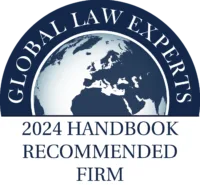When a relationship breaks down, it can also interrupt your future plans. This can of course include your financial security, family home and shared investments.
Your property settlement can play a huge role in how you rebuild your plans for the future. Having experienced, trustworthy asset division lawyers by your side can help you to reclaim your financial wellbeing, both now and into the future.
Watts McCray property settlement lawyers in Wollongong will provide the expert advice you need during this challenging time. We know that every separation and divorce is different, and we take the time to get to know your unique circumstances so we can best serve you and your family.
What is property settlement?
Property settlement is the process of dividing your the assets of you and your partner following a relationship breakdown. While of course the ideal situation would be that you and your ex-partner can amicably work out the division yourselves, or with a mediator, this is often far from reality.
In truth, a divorce or separation can often bring emotional baggage. And sometimes that makes it challenging for ex-partners to communicate effectively. This is where expert family law property settlement lawyers can help. We’re highly experienced at ushering the process along, no matter how broken the relationship.
A property settlement is a separate process from a divorce. You can be legally divorced without having an official division of property, for example. Though you must apply for a property settlement within 12 months of a divorce order.
Who’s entitled to property settlement?
If you and your ex-partner, whether same or opposite sex, were living together as a married or de facto couple, you should consider a property settlement. This is also true of couples where only one partner’s name is on the family home (for example), or only one party worked outside of the home, as another example example.
Australian family law applies the same property settlement eligibility rules across Australia, whether you’re living in Wollongong, Sydney or even in another state. The only requirements are that married couples must apply for property settlement within 12 months of a divorce order, and de facto couples need to apply within two years of their separation.
What’s included in a property settlement?
When navigating the property settlement process, the Court will look at the asset pool of the couple. This includes all income, property, assets, superannuation, financial resources and debts, regardless of whether they’re legally owned by one individually or both as a couple. Assets acquired before or after the relationship are also included.
While every situation is unique, your shared asset pool might include:
- Real estate – your home, investment property, vacant land
- Loans and debts – mortgage, personal loan, credit card debt, tax, capital gains tax obligations
- Superannuation – self-managed super funds, industry funds
- Business interests – interest in a company, sole trader business, partnership
- Shares and investments – share portfolios, managed funds, cryptocurrency
- Savings – cash, joint and individual bank accounts
- Trusts – an interest in a discretionary or family trust
- Vehicles – caravans, boats, cars, motorbikes, e-bikes
- Personal items – furniture, jewellery, home contents
- Winnings, inheritance, gifts – compensation, insurance policy payouts, inheritance, lottery wins
- Overseas assets – bank accounts, investments, property
- Pets and animals

Disclosure obligations
Both parties in a family law dispute have a duty of full and frank disclosure of their financial information with the other party. It’s important to note that this obligation is ongoing until the property settlement is finalised. So, if circumstances change during the settlement process – for example, if you get an inheritance during this time – you must notify the other party of the change.
There are heavy penalties for failing to meet disclosure requirements, including court or legal costs and potentially having more property awarded to the other party. So, it’s important to be completely above board about this process.
Expert property settlement lawyers can help to ensure you meet your obligations. We can also help you to take action if you believe your ex-partner hasn’t given you all their financial information accurately or is even trying to hide assets.

How are assets divided in property settlement?
Many people mistakenly believe that assets are divided 50/50 between the parties after a separation or divorce. But in fact, the focus is on a just and equitable distribution.
The Court will apply the following general process to determine what is a just and equitable distribution of the marital property.
Step 1: Considering if there should be any change in ownership of property at all.
Step 2: Identifying and valuing all assets and liabilities in the combined asset pool.
Step 3: Assessing the financial and non-financial, direct and indirect contributions of each party. This includes contributions from a third party for the benefit of a partner, such as an inheritance from a family member. It also includes contributions as a parent.
Step 4: Considering the current and future circumstances of each party, and how the needs of each party will be met. The courts will consider factors such as earning capacity, heath status, age, childrearing responsibility, etc.
Step 5: Dividing the asset pool in a just and equitable split.

Methods to resolve property settlement
There are several different ways you and your ex-partner can handle your property settlement.
- Negotiation – great for couples who have retained good, or at least amicable, communication
- Mediation – a neutral third-party supports ex-partners to come to an agreement
- Arbitration – a privately appointed expert lawyer makes a binding decision for the parties
- Collaborative law – legal and financial experts support the parties to reach an agreement without going to court
- Litigation – lawyers are engaged to represent the parties in Court

If you’re able to, the best approach is through negotiation. This is typically the fastest and least costly approach. If you can’t agree yourselves, you will then need to try dispute resolution such as mediation. This is another great approach.
If you’re able to reach an agreement with your ex through one of these methods, you will need to formalise the agreement through either a consent order approved by the Court or a financial agreement (often called a BFA), which is a private agreement between you and your ex-partner. This process ensures that your agreement is legally binding and enforceable. Our family lawyers can help you draft and review these documents if needed.
If neither of those options work, you can have your matter heard before the Court. This process will be longer and cost more, but it will also ensure that your property settlement moves forward even if one party is making the process challenging. Again, our expert property settlement lawyers in Wollongong are on hand to support you through this process as well.

How to protect your legal interests during a property settlement
We know you want to safeguard your financial future and ensure that you and your children have economic security in the years ahead. This is what you can do.
Seek legal advice ASAP
Even the most amicable of breakups can still deteriorate. One of the best ways to protect yourself is to understand your position. We advise anyone going through a separation or divorce to speak to a family lawyer before making any agreements with their ex-partner.
Early advice from a Watts McCray family law expert will help you to avoid any mistakes that could affect your financial future. We’ll evaluate your individual circumstances to investigate what you’re entitled to – and help you get it.

Keep a record of everything
Too often, we see people going through a separation or divorce with little to no idea about their financial situation. We recommend that you brush up on your household’s assets and liabilities.
We also strongly advise that you document everything and collate records of all financial information. This includes contributions, loans, credit card debts, gifts, inheritances and investments.
Not only will this help you to meet your own disclosure obligations, but it will also go a long way to ensuring you’re up to date on your state of affairs. That way, you’ll be more confident about what you’re entitled to in the settlement. It will also reduce the risk that your ex-partner can hide or dispose of any assets.
Be on your guard
We know it can be hard to believe that the partner you fell in love with is the same person who is now trying to pull the wool over your eyes. But stay on guard and look out for any financial red flags during this uncertain time, such as your ex living a lifestyle that doesn’t match with their stated financial position.
If you think your ex-partner might have failed to disclose all financial information or is hiding or even transferring assets to conceal them, you must act immediately. As property settlement lawyers, we can help organise urgent protections for assets, or apply for a court order to prevent the disposal of the assets.

Why choose Watts McCray?
Our team of family lawyers, including accredited family law specialists, has supported many families across Wollongong and beyond to reach property settlement outcomes that helped secure their financial futures. We have a proven track record of successful results and five-star client reviews.
We know that your financial wellbeing is at stake, and we’ll always go above and beyond to serve your and your children’s best interests. We’ll work tirelessly to protect your financial interests and help you secure what you deserve. You can trust you’ll always receive empathy, guidance and support during this difficult chapter in your life.
Beyond property settlement, the Watts McCray team also offers legal advice in a range of other matters, including spousal maintenance and parenting arrangements.
Where you’ll find us in Wollongong
Watts McCray Family Lawyers Wollongong are located at:
Centretown Plaza, Suites 8 & 9, 128-134 Crown Street, Wollongong NSW 2500
Getting here by public transport
Our office is just a short walk from the Wollongong Railway Station, which is serviced by frequent NSW TrainLink South Coast line services from Sydney, Kiama and nearby suburbs. From there you can take the free Gong Shuttle (routes 55A and 55C). This convenient loop service connects the station to the CBD, including key destinations like Wollongong Central, TAFE and local beaches.
Several bus routes also run along Crown and Keira Streets. These are easily accessible and drop you just a block from our office.
Parking options
We offer up to two hours of free appointment parking. Additional public parking is also available on street, with many spaces metered during business hours. There’s also additional public parking nearby at the Wollongong Central Multi-Level Car Park and at the P3 Purple Car Park via Kenny or Keira Street.
FAQs
A divorce order is legal recognition that your marriage has come to an end. Property settlement is an entirely separate legal process. You can be divorced without having completed your property settlement.
Property settlement is the process that divides all of your combined assets and liabilities. This is an important step that “unties” a couple and allows them to move forward with their separate lives.
No. If you and your ex-partner have open communication and full disclosure of your assets, then you may be able to reach an agreement independent of the Court. Ideally, you will still seek legal advice to ensure you know what your rights and obligations are.
Watts McCray property settlement lawyers can help you through dispute resolution methods such as negotiation or mediation. Once an agreement has been reached on the division of your assets, we can help you formalise it via a consent order or financial agreement.
This depends on a number of factors, such as the number of assets and liabilities you have in the shared pool. It will also depend on how complicated your assets are and how difficult it is to get an accurate valuation for them (for example, international investments, business interests and cryptocurrency can be more challenging to find and value, particularly if there are issues with disclosure).
Finally, your communication status with your ex-partner will also come into play. If you can reach an amicable agreement without going to court, it will help speed up the process.
Reach out to the Watts McCray Wollongong team and we can review the agreement with you. We can share our advice on whether the terms are in your best interest or whether you’re entitled to more. We always recommend seeking legal advice before taking the next step, because once consent orders are made, they’re enforceable and difficult to change.
If it’s a just and equitable agreement, or one you still want to go ahead with, we can guide you on the best method to formalise the deal.
It is not appropriate for a party to dispose of assets that should be in the couple’s shared asset pool, prior to agreement as to division. If your ex-partner does this, there may be serious consequences, depending on the nature and extent of the disposal of assets. If you suspect or have evidence that they’re attempting to sell or conceal any assets, you should seek legal advice immediately.
The Watts McCray team in Wollongong can help you to apply for an injunction to prevent your ex-partner from disposing of any property, cash, businesses and other assets, if that is considered to be necessary.
No. The court recognises both financial and non-financial, as well as parenting contributions during a marriage. So if you contributed to the family by raising children and taking care of the household, for example, then your input will also be taken into account.
The court will also look at factors such as your current and future earning capacity. So if you had to leave the workforce to raise the kids, this will be considered.
Contact our Specialist Family Law Team
Do you have a question about family law or relationship law?
Contact us today, and a member of our team will get back to you soon.
Meet our Lawyers
Contact our Specialist Family Law Team
You can contact our divorce lawyers to assist you with the divorce process.

Other Family Law Services



Accredited to deliver
Choose a team with more accredited lawyers.




